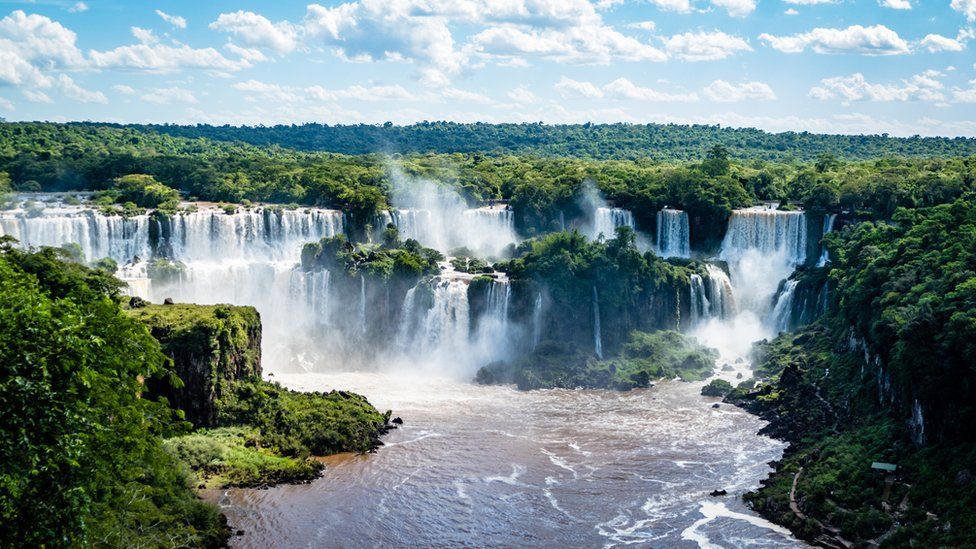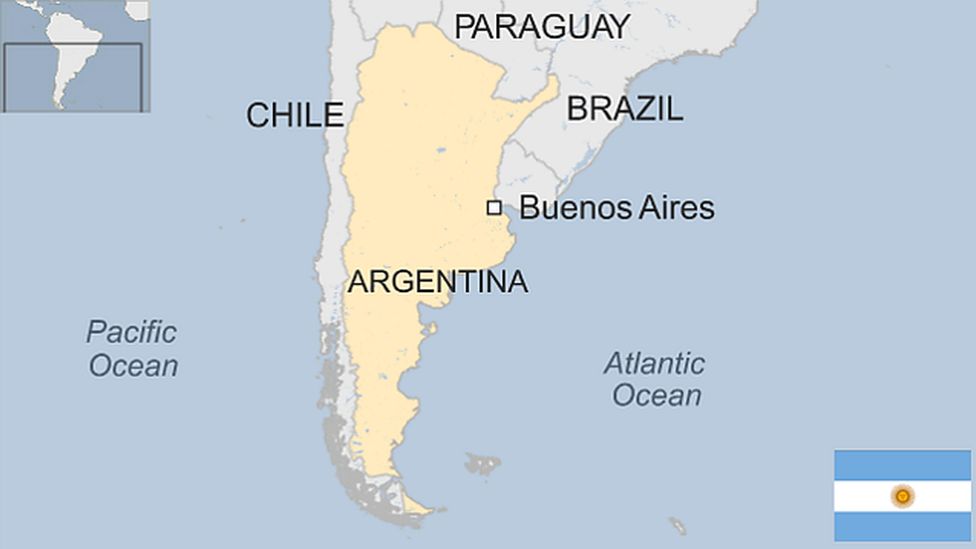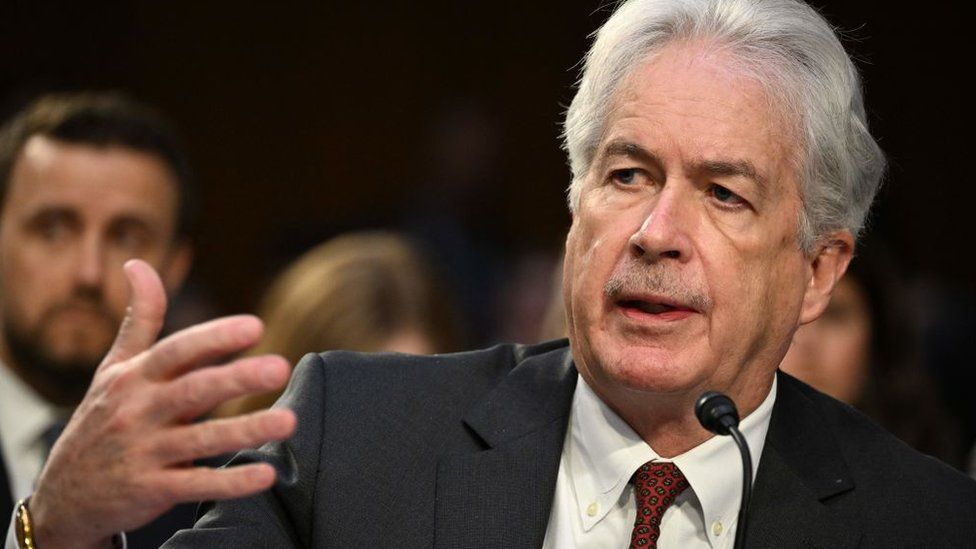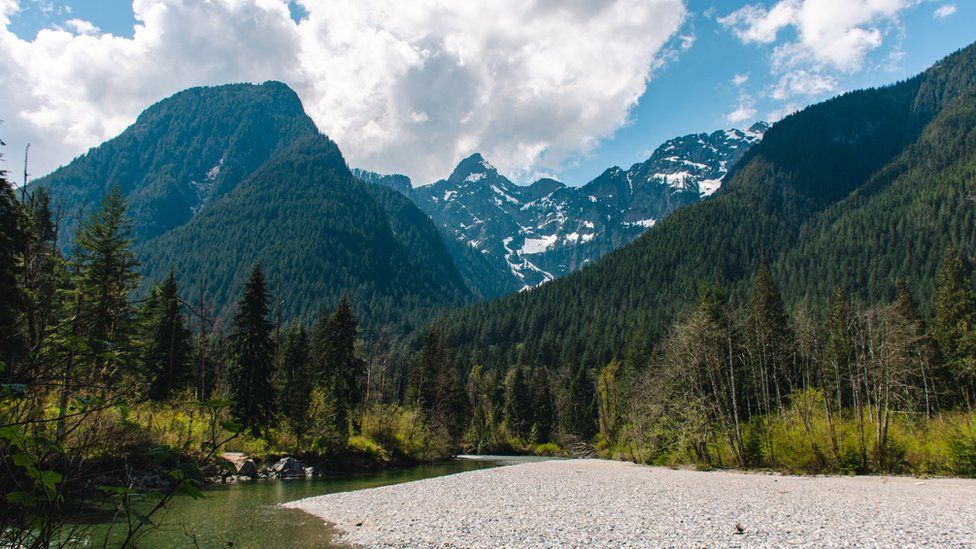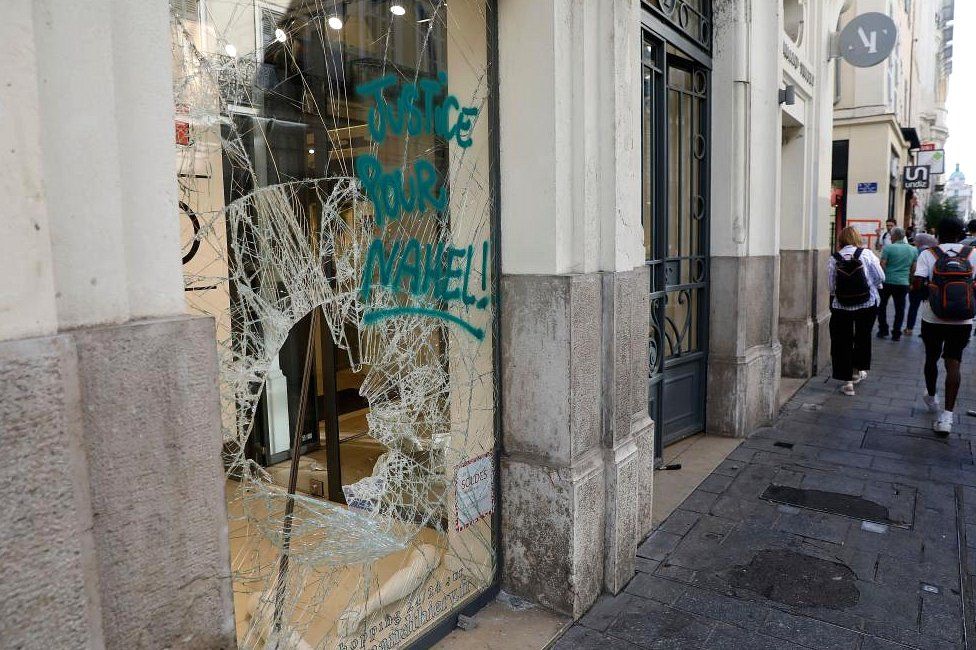Argentina stretches for four thousand kilometers, from its subtropical north to its subantarctic south.
The Pampas plains, swamps, a portion of the Andes mountain range, and a long coastline make up its landscape. .
Argentina is one of South America's largest economies, has a workforce that is highly educated, and is rich in resources. Its contributions to culture include the tango dance phenomenon and well-known authors like Jorge Luis Borges. .
However, military coups and the whims of the populist Peronist movement have disrupted its political life, and its economy has been subject to jarring booms and recessions.
View additional nation profiles on the BBC Monitoring website.
- Capital:. Buenos Aires.
- Area: . 2,780,400 sq km.
- Population:. 47.3 millions.
- Language:. Spanish as well as Welsh, Mocov, Quechua, Qom, and Guaran.
- Life expectancy: (Men) 73 years; (Women) 80 years.
Alberto Fernandez is the president.
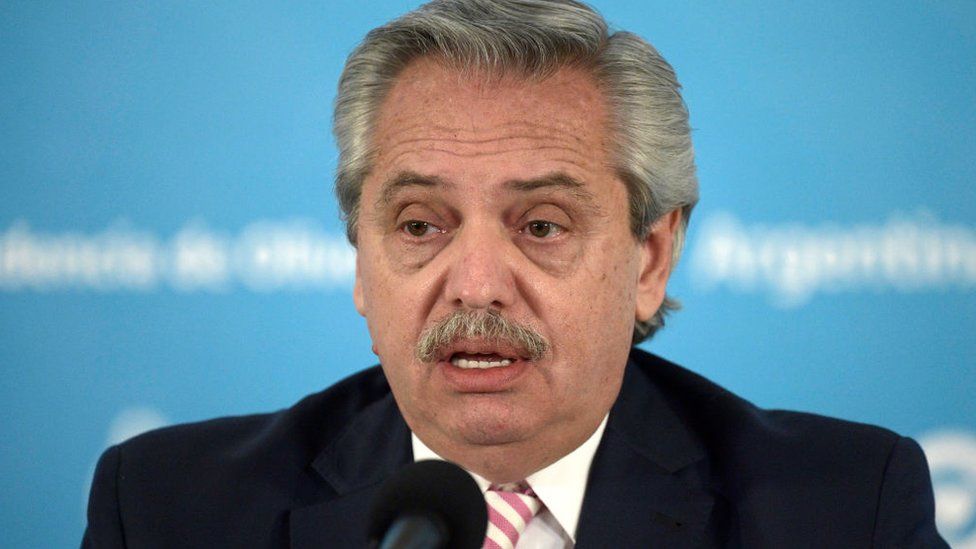
Since winning the 2019 presidential election, which was a reflection of the public's discontent with the recession, high inflation, and austerity measures, centre-left Peronist Alberto Fernández has been in office. He defeated the incumbent Mauricio Macri.
To address Argentina's economic crisis, Fernandez vowed to increase pay and benefits when he took office.
However, there haven't been many indications that the nation's economic crisis is getting better. Martin Guzmán, Argentina's minister of the economy, resigned in 2022 due to differences in the government's approach to policy. In order to restructure the country's debt, he had been in charge of negotiations with the International Monetary Fund.
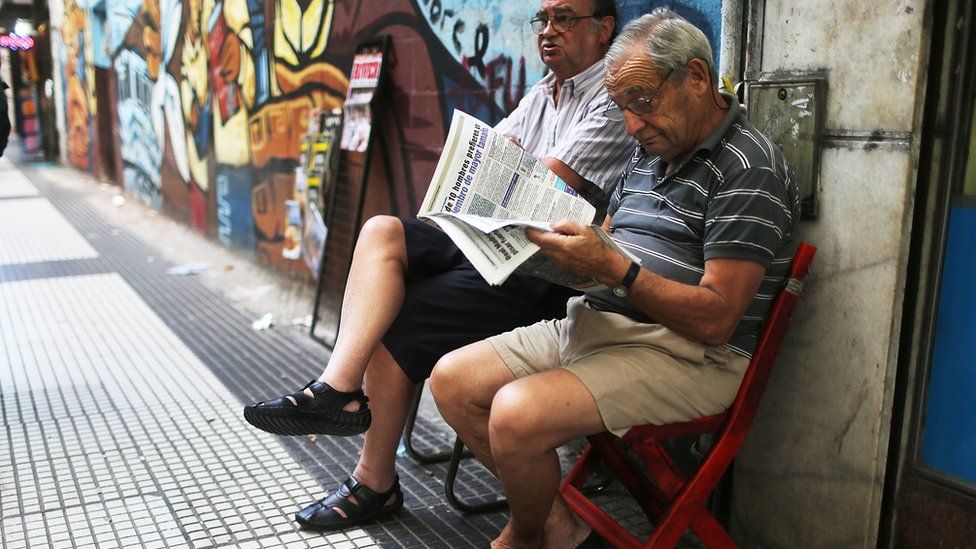
One of South America's largest media markets is Argentina.
The most popular form of media is television, and the major networks are run by sizable privately held businesses.
The government typically does not censor the media.
One of the highest internet usage rates in the area is found in this nation. The most popular social network is Facebook.
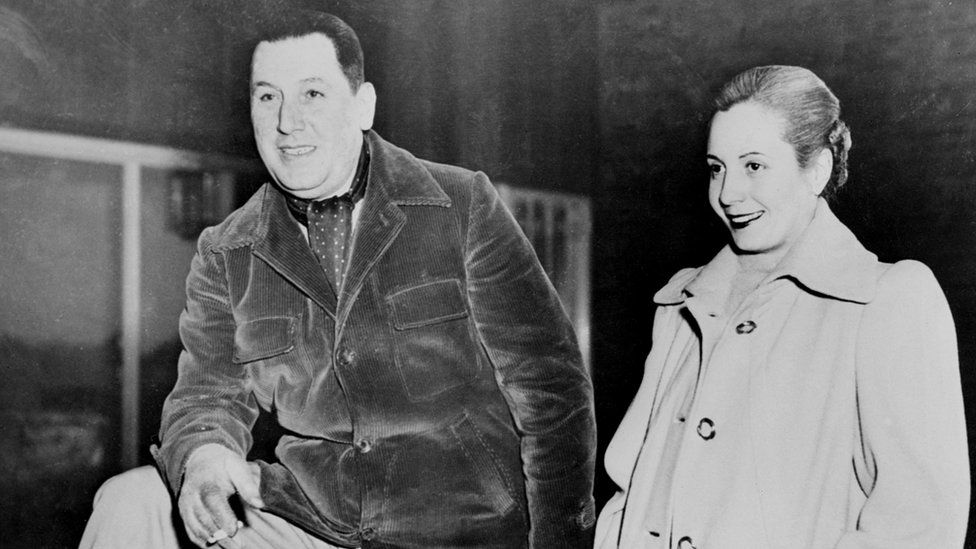
15th century. - The coast and interior of the River Plate are first colonized by the Spanish.
1776 . - The Viceroyalty of the River Plate is established by Spain separately.
1810 . - Viceroy overthrown, starting the independence war.
1816 . - The declaration of independence was followed by decades of unrest, an attempt at foreign intervention, and a civil war between forces supporting centralization and those supporting federalism.
1861 . - The State of Buenos Aires rejoined the Argentine Confederation to create a single nation.
1880 . - Beginning of several decades of liberal immigration and economic policies that resulted in rapid income and population growth as well as progressive social and educational policies.
1916-22 . – President Hipolito Yrigoyen implements a number of progressive social reforms. In 1928, he wins reelection to a second term as president.
1930 . Argentina suffers greatly from the Great Depression as a result of a decline in global demand for its agricultural exports. Military coup leads to military interventions that don't end until the 1980s.
1932. – Civil rule is reinstated, but the economic downturn continues.
1943 . - Nationalist army officers seize control in a show of defiance against the status quo and election fraud. Juan Peron, a colonel, is one of them.
1946 . Juan Peron wins the presidency on the platform of increased pay and social security. The management of labor relations is given to his wife, Eva "Evita" Peron.
1949 . - The president's authority is increased by a new constitution. Independent newspapers are suppressed, and opponents are put in jail.
1951 . - Peron wins re-election with a sizable majority, but after Evita's passing the following year, his popularity starts to wane.
1955 . President Peron is forced to resign and leave the country due to violent military uprisings.
1966 . - After years of unreliable civilian governments, General Juan Carlos Ongania takes over.
1973 . - The Peronist party triumphs in the March elections, and Peron takes office in September.
1974 . In July, Peron passes away. Isabel, his third wife, takes over as his successor. In a climate of strikes, protests, and escalating inflation, right- and left-wing terrorism kills hundreds of people.
1976 . - Armed forces take control and start a "Dirty War" in which tens of thousands of people are killed on the pretext of having left-wing sympathies.
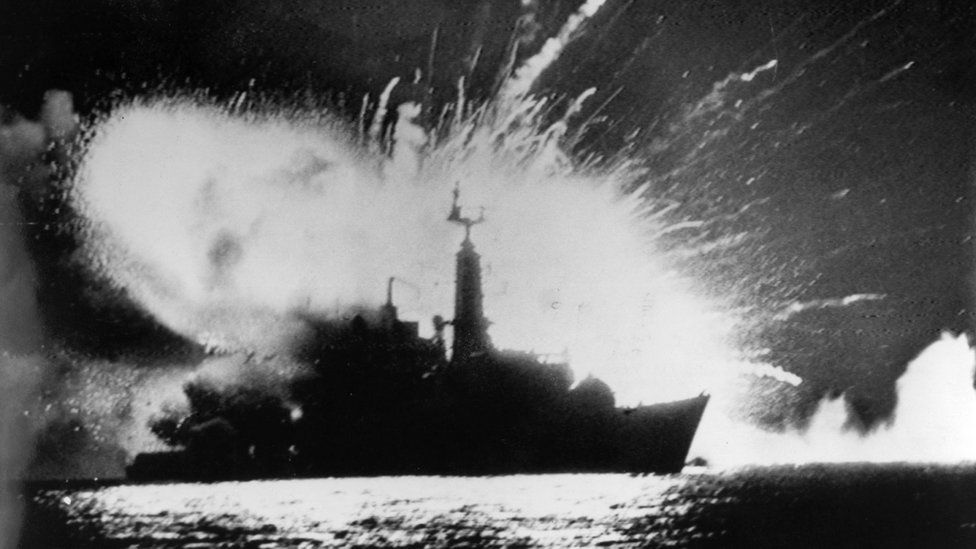
1982 . - In the South Atlantic, Argentine forces invade the British Falkland Islands, but are driven out by British forces months later after fierce combat.
1983. - Junta reinstates democracy in the wake of the Falklands disaster. The presidency is won by Raul Alfonsin.
1990. - Full diplomatic ties are reestablished with the United Kingdom, despite Argentina's continued claim to the Falkland Islands.
1994. - In Argentina's worst terrorist attack, a Jewish community center in Buenos Aires is bombed, leaving 86 dead and more than 200 injured. Criminal charges have been brought against Iran and Hezbollah in Lebanon.
2001 . - Economic downturn. With a default on its sovereign debt of more than $80 billion (£42 billion), Argentina creates history. Nestor Kirchner's peripatetic administration brings stability back.
2005 . - The Supreme Court rules in favor of repealing the amnesty law that had shielded former military personnel suspected of violating human rights between 1976 and 1983. In 2003, the Amnesty was repealed by the Congress.
2013 . - Argentina becomes the first nation to receive a censure from the IMF for providing inaccurate information on inflation and economic growth.
The majority of Falkland Islanders vote to keep their status as a British overseas territory.
Pope-elect is Buenos Aires Cardinal Jorge Mario Bergoglio. He adopts the name Francis and becomes the first Latin American to be Pope.
2014 . Argentina makes its second international debt default in 13 years.
2015 . - To limit the role of the state in the economy, conservative President Mauricio Macri introduces a program of market reforms.
2019. - Alberto Fernández, a Peronist, wins the presidency, becoming the first challenger to depose a president.
